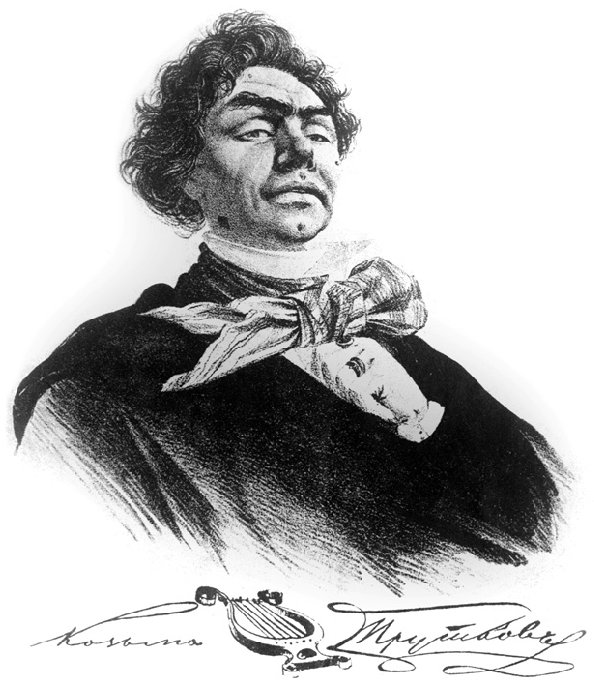It should be funny — but it isn’t

by Lev Tsitrin
Please do not attribute to perversion my bursts of laughter when I read NER’s press release disclosing Amazon’s disgraceful ban of Ibn Warraq’s “The Islam in Islamic Terrorism: The Importance of Beliefs, Ideas, and Ideology“. My associative thinking was at fault. Somehow, the press release brought to mind a hilarious classic of Russian literature — the “Works of Kozma Prutkov.” Too idiosyncratic to bear translation into a foreign language, the book is unlikely to be known outside of Russia; but mention Prutkov to a Russian, and you will instantly hear laughter. His “Works” — an outcome of the moments of levity of four mid-19th century Russian aristocrats (one of them a close personal friend of the Tsar) and written in the name of an obscure bureaucrat in the Assay office who thinks he is a profound thinker and a poet of genius, pouring out aphorisms, plays, poems, and essays, it is a great example of deadpan humor. The juxtaposition of “Prutkov’s” solemn seriousness of purpose with triviality of his thoughts that are expressed in antiquated, highfalutin language is so grotesque that one cannot help but laugh at resulting pronouncements.
“Prutkov” being, among other things, a patriot par excellence, one of his effusions is a draft of a petition titled “A suggestion for introduction of uniformity of thinking in Russia.” It is well worth quoting in full but, it being several pages long, I will have to limit myself to snippets that distill its main points. Starting with a perfectly valid premise, “Prutkov” proceeds as follows: “It is natural for one to wish to avoid falling into an error. But to do so, one needs to have proper grounds for forming an opinion. What are such grounds? The only solid grounds on which to form an opinion are the opinion of the higher-ups. Otherwise, there can be no guarantee that one’s opinion will not be erroneous. But how to learn the higher-ups’ opinion? [here follows a lengthy and hilarious digression on why this is not necessarily an easy task]. It would be best to establish an official publication that would provide guidance on any issue. This governmental publication, being sufficiently supported by the police and administrative organs, would become public opinion’s load-star and lighthouse, The pernicious propensity of a human mind to discuss everything that goes on on Earth would be curbed and directed exclusively towards above-mentioned views. … A true patriot should not be given to questioning… Notes: (1) all editors of private publications should be ordered to reprint articles from this, government’s, publication and (2) every manager must provide to a centralized agency a list of their employees that has newspapers and magazines to which they subscribe. Those who do not subscribe to the official organ should be neither promoted nor given raises.”
In 1863, when this was published in Tsarist Russia, it was considered a specimen of humor. Obviously, no one could possibly take this seriously. And yet, how does life imitate art! Big way — the Soviet Union, the Nazi Germany, the mainland China, the ayatollahs’ Iran are all Prutkovean projects; they all embody and fulfill his absurdly hilarious “Suggestion“!
Are we headed in the same direction? Well, we are pretty far yet — but the restrictive direction of our “marketplace of ideas” is not encouraging; Amazon’s removal of Mr. Ibn Warraq excellent — and timely — book, apparently because it encourages “questioning” of the official dogma that terrorism has nothing to do with Islamism is worrisome, to say the least. Contrary to “Prutkov,” questioning is at the root of cognition, and cognition is at the root of human progress. Truth is not learned from “the opinion of the higher-ups,” as “Prutkov” so hilariously suggested. On the contrary, it is gained from “discussing everything that goes on on Earth.”
Amazon — and others in the “marketplace of ideas” — should strive to widen that marketplace, not to shrink it. One would think that the infamous Index Librorum Prohibitorum is far behind us, but unfortunately — as the case of Mr. Ibn Warraq so amply demonstrates — it isn’t. And — for all my laughter at “Prutkovean” allusions, this isn’t funny at all.